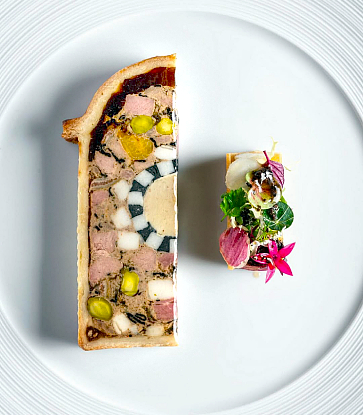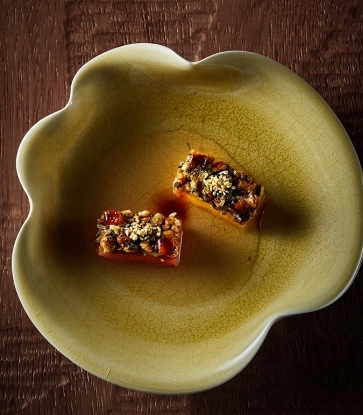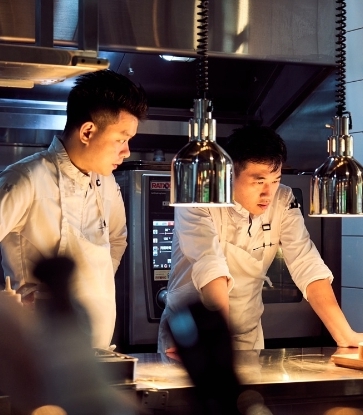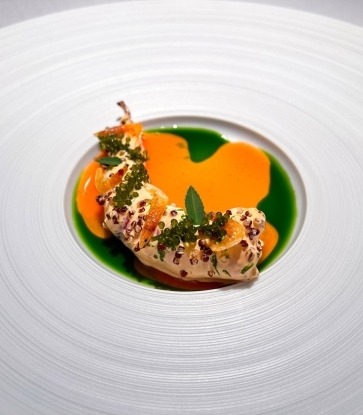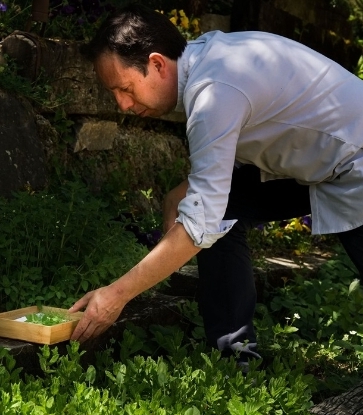The busiest season for Taiwanese restaurant Golden Formosa is during Chinese New Year. Preparations for this critical period begin as early as half a year beforehand, when the restaurant begins sourcing premium dried ingredients. Two months to the festive period is when things really pick up speed. Once the Chinese New Year dishes go up for pre-order in December, the bookings are filled up quickly. Popular items like the Buddha’s Temptation are gone in a matter of 45 days.
This traditional outlet in the Tianmu District, having been run by three generations of the same family, is one of the only two Michelin-starred restaurants in the inaugural MICHELIN Guide Taipei 2018 which focus on Taiwanese food.

Formerly known as Formosa Restaurant, the establishment was founded in 1954 in Xinbeitou by Chen Lian-Zhi, grandfather of current chef-owner Eric Chen. That was the heyday of Taiwanese banquet cuisine. Restaurants were the prime social spot for entrepreneurs and intellectuals to engage in all kinds of business, political and social discussions. Sumptuous dishes of all sorts were served with wine, music and dance performances such as nakasi, a rustic form of traditional music. “It was in my childhood that the banquet restaurants were at their peak, and also their final stage. Every day when I opened my eyes in Xinbeitou, the area was packed with people,” Eric Chen said.
Chen followed his grandfather and father into the kitchen at a young age. It didn’t take long for him to develop a deep attachment to different produce and flavours. Take canned abalone as an example. When it was an ever-present cold appetiser in the old times, the trimmed off parts of the abalone would always be fed to the young Chen. Recently, he started serving Hokkien fried rice as an off-menu item. The sauce incorporates the master stock from braising pork knuckle, chicken stock and the umami-rich abalone juice from a can, the latter an ode to his childhood memories.
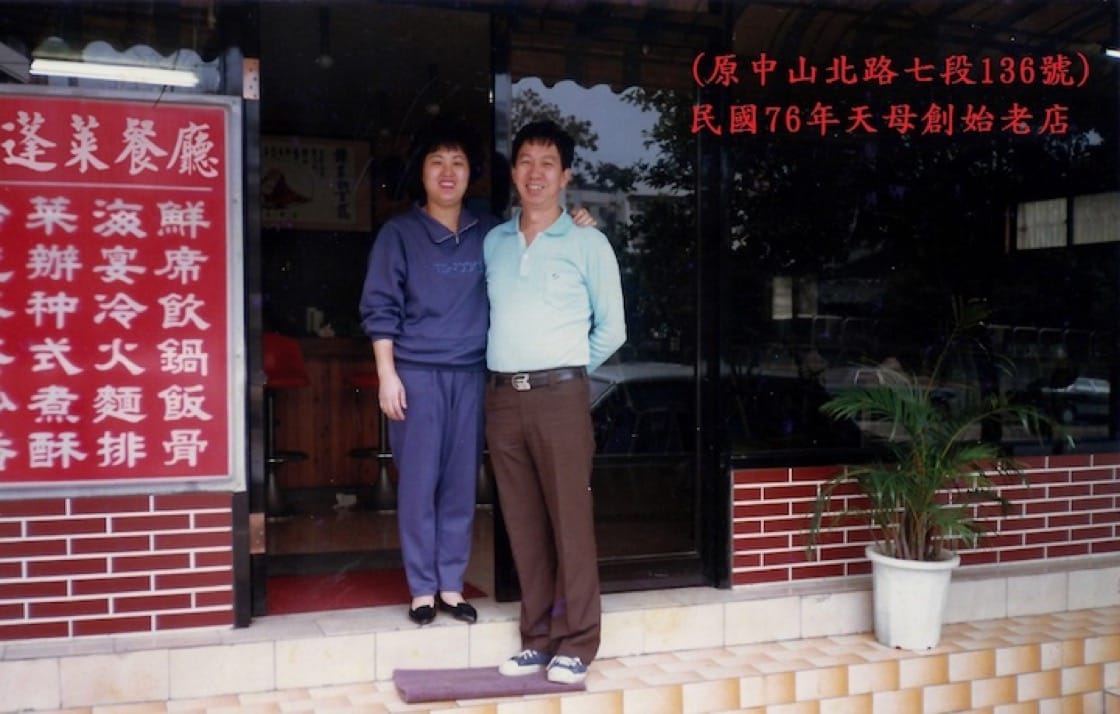
Eric Chen’s father Johnny Chen took the restaurant from Xinbeitou to Tianmu, renaming it Golden Formosa. Knowing how hard it was to get up at 4am to procure ingredients, the elder Chen didn’t wish to see his son labour away in the kitchen. Nevertheless, Chen knew how much effort his father had invested in the venture. That sense of responsibility was enough to make him give up his airline executive position and go home. “Your father doesn’t want you to be too exhausted and yet, because you saw how exhausted he was, you ended up in the kitchen — it’s quite ironic,” he says.
From his grandfather’s days to this point, the Formosa franchise has existed for 60 years. It is a prestige being a long-standing brand reputed for serving old flavours. On the flip side, it also comes with a certain burden of expectations.
“We need to make something that diners have eaten for 70 years without them getting bored. Do you know how hard that is? It’s a stress you can’t imagine,” Eric Chen says.
It requires an uncompromising spirit against commercial pressure, competition and simply tiredness to get through it. He elaborated that sometimes there are staff at a restaurant who underperform or fail to work with the team, but the owners might not ask them to leave because they don’t have enough manpower or they want more business. He remarked that compromise is the biggest question in the kitchen. “But we don’t want to compromise and we haven’t compromised.”

This attitude is acutely demonstrated in the way the restaurant handles the prep work of its dishes. Considering the bestseller Buddha’s Temptation, there are more than 10 side ingredients; seven or eight of them need to be par-fried to elevate their fragrance. One of those ingredients is taro. Chen likes its creamy texture and special aroma after deep-fried, but the readymade ones brought in from elsewhere wouldn’t be good enough in his books. As he has no control over how they are produced — how long they are fried, what the frying temperature is — there is no guarantee the ingredients sent to him are what he wants.
“Cooking is very honest. Very often when you go the extra mile in preparation, you would get an extra layer of flavour,” he said, “Many people would think there are so many things inside (Buddha’s Temptation). One small ingredient wouldn’t make a difference. But if you lower your standards for every ingredient by just a little, they would add up and become a big deal.”

This is what he most wants to pass on, not technique, but the spirit of a chef. You need to take every dish that is made out of your hands seriously. Once it is out, it would come face to face with the customers.
Eric Chen accompanies his team taking care of the produce early in the morning. Once, he passed by a line cook working on the chicken stock, he saw him putting the whole chicken into the pot and adding some stock. He immediately reminded the junior that the temperature of the chicken stock would drop and he needed to adjust the heat. However, the fire couldn’t be turned all the way up in an instant, since that would break the chicken meat.
“It takes a long time to guide them, changing their minds, not only the behaviour,” he pointed out. “Then they would realise the value of these changes, because the food would turn out a different way. As they feel they are stronger than before, they would try finding a way towards the positive direction.”
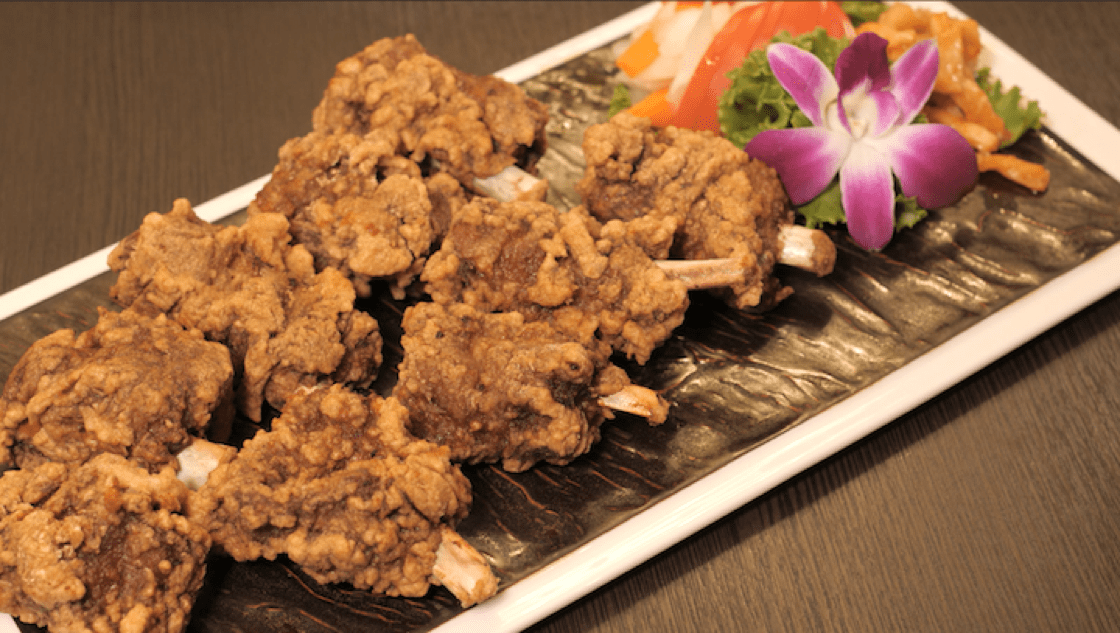
That said, passing on the legacy doesn’t mean just sticking to the ways of the past. It is equally important to evolve with time, being more attentive to details. This is how traditional tastes get a new lease of life. One of Golden Formosa’s signature dishes is a deep-fried pork ribs passed down from his grandfather’s era. Given pork was an expensive ingredient in the past, the ribs would not be trimmed to save most of the meat for the diners. But in Eric Chen’s hands, he determined that the ribs have to be cut to between 6.5cm to 9cm, so that the cooking time and the texture of the dish can be better managed.
As for the hog maw and chicken soup, the traditional method was to stuff softshell turtle inside the cavity of a chicken, which is in turn enveloped in hog maw. The modern version has the maw filled with collagen-rich pig’s tail. It is melt-in-your-mouth tender after being double-boiled.
More than a decade earlier, when Eric Chen first took over the family business, the hectic work schedule right before the Chinese New Year pushed him towards the edge. He suffered from aplastic anemia. His body had problems producing new blood cells, such that he could not walk or breathe properly. Luckily, his life was saved by his sister, who is also the restaurant’s manager, whose bone marrow was a match to his. That episode led him to be even more earnest to do the job on hand. “What the diners buy is actually not our food, but our time and our heart,” he said.
This story is written by Hsieh Ming Ling and translated by Vincent Leung. Click here to read the original article.





